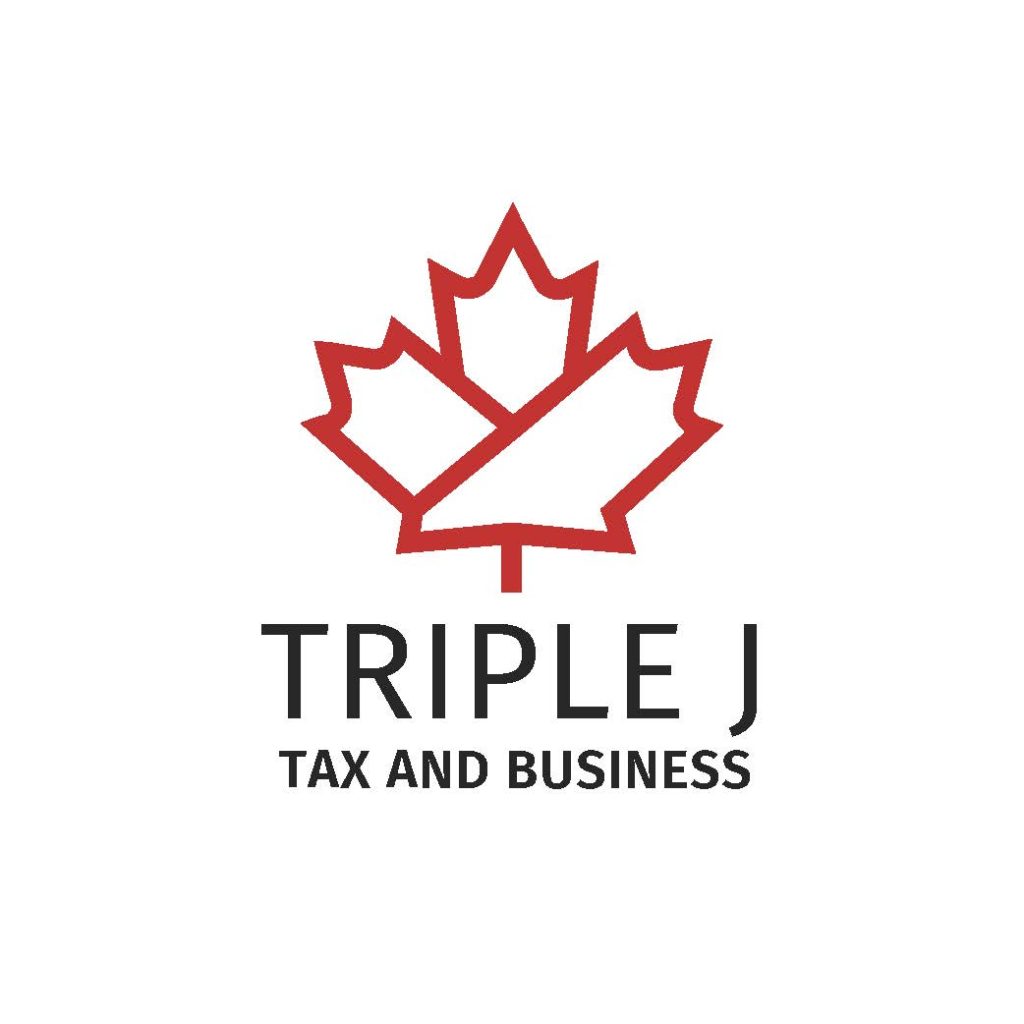Triple J Canada is member of the Canadian Payroll Association.
Payroll & Remittance Services in Mississauga & Toronto
We stay updated to current payroll issues and we have member resources for payroll solutions.


We can help the following:
- 01. Pay Stubs
- 02. Payroll remittance calculation
- 03. Payroll remittance form
- 04. T4 slips reporting
- 05. T4A slips reporting
- 06. T4 summary
- 07. WSIB remittance
- 08. Payroll remittance review to ensure compliance
- 09. Conversion from manual payroll system to electronic payroll system
- 10. Reply CRA payroll enquiries
For the 2020 tax reporting year, CRA has introduced four new codes to the ‘Other Information’ section of the T4 slip. In addition to reporting employment income in T4 slip Box 14 all employers that paid employment income to employees on a pay date that fell between March 15 and September 26 are required to complete this new reporting.
The four new codes and date ranges they cover are:
| Code | Any pay date between |
|---|---|
| 57 | March 15 and May 9, 2020 |
| 58 | May 10 and July 4, 2020 |
| 59 | July 5 and August 29, 2020 |
| 60 | August 30 and September 26, 2020 |
Frequently Asked Questions about Payroll & Remittance
Employers can recover wage advances or loans through payroll deductions, but only with the employee’s written consent. The deduction must not reduce the employee’s wages below the minimum wage.
It’s essential to clearly document the repayment terms, including the amount and duration of deductions. Employers should also be aware that deductions for damages, equipment loss, or other expenses unrelated to wage advances are prohibited under the ESA without explicit consent.
Staying compliant requires employers to understand and adhere to federal and provincial regulations, including:
- •Regularly reviewing changes to the Employment Standards Act and CRA rules.
- •Using payroll software that automates calculations, tracks hours, and generates tax forms.
- •Conducting internal audits to verify the accuracy of payroll records and remittances.
Employers struggling with compliance may benefit from outsourcing payroll management to a professional service. Providers like ADP or Payworks ensure adherence to laws, manage tax filings, and minimize the risk of penalties or disputes. Regular training for HR and payroll staff also helps maintain compliance.
In Ontario, employees are entitled to at least two weeks of paid vacation per year after 12 months of employment, increasing to three weeks after five years. Vacation pay must be at least 4% of the employee’s gross wages (6% after five years).
Employers can either pay vacation pay with each paycheck or provide it as a lump sum when the employee takes their vacation. Payroll systems should track vacation pay accruals and payments to ensure compliance with the ESA and avoid disputes.
Misclassifying employees as contractors can lead to fines and back payments for missed benefits. The CRA uses a series of tests to determine the relationship, focusing on:
- •Control: Who decides how, when, and where work is performed?
- •Ownership of Tools: Does the worker use their own equipment?
- •Financial Risk: Is the worker responsible for their own expenses?
- •Opportunity for Profit: Can the worker profit or suffer a loss based on their work?
Employees are subject to payroll deductions for CPP, EI, and taxes, while independent contractors manage their own contributions. Clear contracts and regular reviews can help employers avoid misclassification issues.
Employers in Ontario must keep detailed payroll records for at least six years, as required by the CRA and the Employment Standards Act (ESA). These records should include:
- •Employee personal details (name, address, SIN).
- •Dates of employment, hours worked, and wages paid.
- •Deductions for CPP, EI, and income tax.
- •Records of vacation pay, overtime, and statutory holiday pay.
Accurate records are crucial for audits, employee disputes, or legal compliance. Using payroll software can simplify record-keeping by storing and organizing employee data and payment history in one secure system.
Late remittances can result in significant penalties. The CRA imposes a 3% penalty if the payment is one to three days late, 5% for four to five days, and 7% for six to seven days late. Payments more than seven days late incur a 10% penalty. Repeat late remittances within a calendar year may result in additional penalties.
Interest is also charged on unpaid amounts, compounding daily at a prescribed rate. Employers can avoid these penalties by using automated payroll systems to calculate and remit on time or by working with a payroll provider that guarantees compliance.
Statutory holiday pay compensates employees for public holidays. In Ontario, employees are entitled to nine public holidays, including New Year’s Day, Canada Day, and Christmas Day. To calculate statutory holiday pay, divide the employee’s regular wages earned in the four weeks prior to the holiday by the total days worked.
Employees must meet eligibility criteria, including working their scheduled shift before and after the holiday, unless they have a valid reason. If an employee works on a statutory holiday, they are entitled to premium pay (1.5 times their regular rate) plus an alternative day off with holiday pay.
As of October 1, 2024, the general minimum wage in Ontario is $16.55 per hour. Special minimum wage rates apply for certain groups, including students under 18 ($15.60/hour) and liquor servers ($15.50/hour). Employers must ensure that employees are paid at least the applicable minimum wage for all hours worked.
Failure to comply with minimum wage laws can result in penalties under the Employment Standards Act (ESA). Employers must also calculate and pay statutory holiday pay and overtime pay correctly, which are often overlooked when calculating payroll.
Payroll remittance deadlines depend on the size of your payroll:
- •Regular Remitters: Employers with an average monthly withholding amount (AMWA) of less than $25,000 must remit payroll deductions by the 15th of the following month.
- •Accelerated Remitters: Employers with an AMWA of $25,000 to $99,999 must remit semi-monthly. For employers with an AMWA exceeding $100,000, remittance is required within three business days of the pay date.
T4 slips summarizing employees’ income and deductions for the year must be issued to employees and submitted to the CRA by the last day of February following the calendar year.
Employers in Ontario are required to deduct three main items from employee paychecks:
•Canada Pension Plan (CPP): Contributions to the CPP provide income during retirement or if the employee becomes disabled. For 2024, the rate is 5.95% of the employee’s income up to a maximum yearly contribution.
•Employment Insurance (EI): EI provides temporary income support for employees who are unemployed or on parental leave. The employee EI rate for 2024 is 1.63% of insurable earnings.
•Income Tax: This is deducted based on federal and provincial tax rates and depends on the employee’s total earnings and personal tax credits.
Employers must remit these deductions, along with their own CPP and EI contributions, to the Canada Revenue Agency (CRA) on a monthly or quarterly basis.

What Does Our Toronto Payroll Services Include?
Managing payroll as a small business owner can be time-consuming and stressful, especially with the complexities of compliance and reporting. Our Toronto Payroll Services are designed to simplify the process, ensuring your business remains efficient, compliant, and stress-free. Here’s what we offer:
1. Pay Stubs
We provide accurate, detailed, and professional pay stubs for your employees, ensuring they have clear records of their earnings, deductions, and net pay.
2. Payroll Remittance Calculation
Our team calculates the exact amounts you need to remit to the CRA, including deductions for CPP, EI, and income tax, ensuring accuracy and compliance.
3. Payroll Remittance Form
We prepare and provide remittance forms that are easy to submit to the CRA, saving you time and reducing the risk of errors.
4. T4 Slips Reporting
At the end of the year, we generate and file T4 slips for your employees, ensuring they receive the necessary documentation for their personal tax filings.
5. T4A Slips Reporting
For contractors and non-employee payments, we handle the preparation and submission of T4A slips to the CRA.
6. T4 Summary
We prepare a comprehensive T4 summary to accompany your T4 submissions, keeping your CRA reporting accurate and complete.
7. WSIB Remittance
For businesses required to contribute to the Workplace Safety and Insurance Board (WSIB), we calculate and remit premiums on your behalf.
8. Payroll Remittance Review to Ensure Compliance
We review your payroll remittances regularly to ensure compliance with CRA regulations and Ontario’s employment laws.
9. Conversion from Manual to Electronic Payroll Systems
Our team can transition your business from a manual payroll process to a modern, efficient electronic payroll system, saving time and reducing errors.
10. Reply to CRA Payroll Enquiries
If the CRA contacts you with payroll-related questions or audits, we provide prompt and professional responses, ensuring your business remains compliant and protected. With our comprehensive payroll services, you can focus on growing your business while we handle the complexities of payroll management. Contact us today to learn more!

